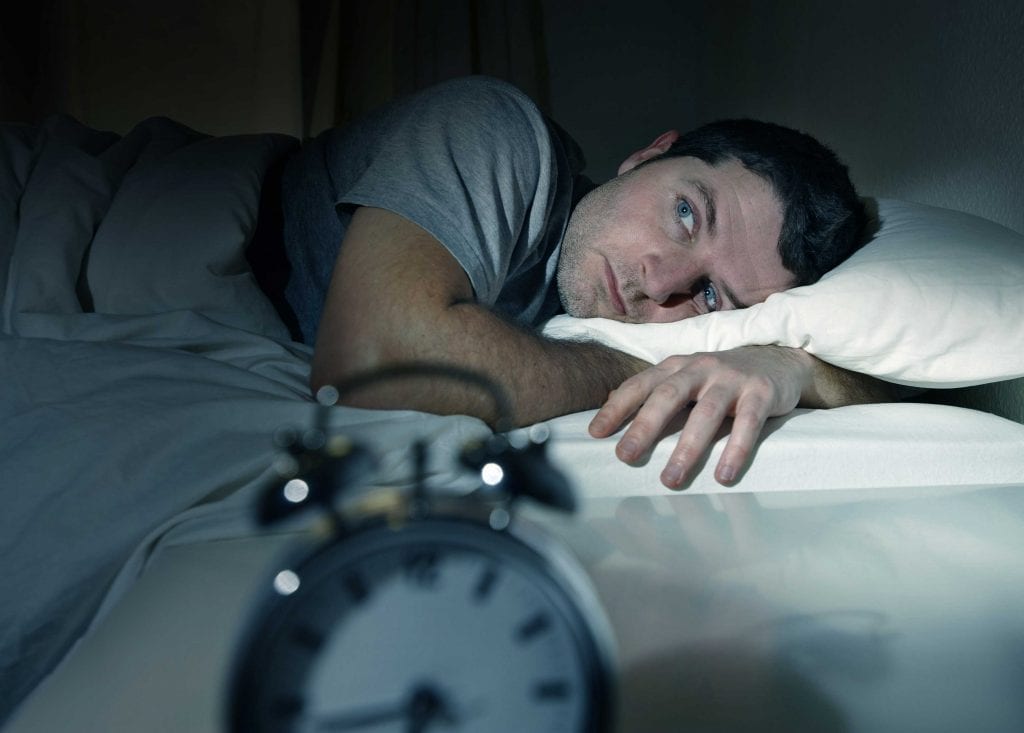Sleep Loss and Weight Gain
We all have plenty of reasons to stay up at night, but what if we told you that bad sleeping habits make you fat? Fortunately, we don’t have to be the ones to break that news to the world, because there’s an abundance of literature out there that says exactly that. From Harvard studies that show oxidative stress in sleep-deprived people to accounts of hormonal imbalance, there is tons of evidence that shows that while the mechanisms of sleep are poorly understood, they play an essential role in regulating the body’s metabolism.

Heightened Cravings
Anyone who’s had to deal with a disrupted sleep schedule can speak to how tempting food becomes. When we’re tired, we tend to reach for all kinds of rich, fattening goodness, and that’s because a lack of sleep dramatically changes the way the hormones in your body work.
Specifically, sleep-deprived individuals feature higher levels of cortisone, a stress hormone, and altered levels of leptin and ghrelin, two hormones that govern food cravings and satiety. When difficult circumstances (like a lack of sleep) encourage your body to produce cortisone, your body will attempt to calm you down by producing more serotonin, a neuroreceptor associated with good and stable moods. The best material for quickly manufacturing serotonin is, however, rich and fatty food.
Sleep disruption also leads to your body producing a lot of ghrelin (which triggers your appetite), and a reduced amount of leptin (which lets you feel satisfied after a meal). Combining these three hormonal shifts together, and you have a recipe for uncontrolled eating that contributes to greater weight gain.
Metabolic Disruption
Suppose, however, you have a will made of iron, and you resist fatty foods even while you’re tired. Unfortunately for you, disrupted sleep also makes your body less efficient at processing the resources that it already has. When you’re tired, for example, the mitochondria in your cells (responsible for producing energy) lose their ability to work effectively. You also become less efficient at processing sugars, and it has been demonstrated that sleep-deprived individuals can show an insulin resistance as high as 30%.
A resistance to insulin means that more sugar stays in the blood-stream, which leads to a higher net blood sugar and, over time, a greater quantity of blood sugar metabolism into fat instead of spikes of energy.
There is evidence that this is just the tip of the iceberg, too. Though it has led to no conclusions yet, scientists have found traces of oxidative stress in sleep-deprived individuals that seem tied to a less effective metabolism overall.
If you have the opportunity to establish a healthy, diurnal schedule, but can’t seem to find the motivation, think of this as an incentive. Even thirty minutes of sleep deprivation can trigger these reactions, so what’s more important to you? A late-night Episode of Black Mirror or a thinner waistline with zero exercise required? The choice is yours, but we know which one we’d pick!
Methodist Continuing Care
Sleep Lab
701 S. Fry Rd.
Suite 225
Katy Texas 77450
© 2023 The Respire Institute – Pulmonary and Sleep Disorders. All Rights Reserved The Respire Institute – Pulmonary & Sleep Medicine
West Houston & Katy Area
Advanced Respiratory Care Center
Primary Clinic and Pulmonary Rehabilitation Center
Methodist West Professional Building 2
18300 Katy Fwy Suite 615
Houston, Texas 77094
West Houston & Katy Area
Advanced Respiratory Care Center
Primary Clinic and Pulmonary Rehabilitation Center
Methodist West Professional Building 2
18300 Katy Fwy Suite 615
Houston, Texas 77094
Memorial West
Sleep Lab
10 Medical Plaza
10837 Katy Freeway,
Suite 250
Houston, TX 77079
contact information
Contact Us
Careers
Marketing & Partnerships
Patient Resources
Join a Research Study
New Patient Packet
Patient Portal
Provider Resources
Sleep Study Referral Form
Meet our Doctors
Referral Form
